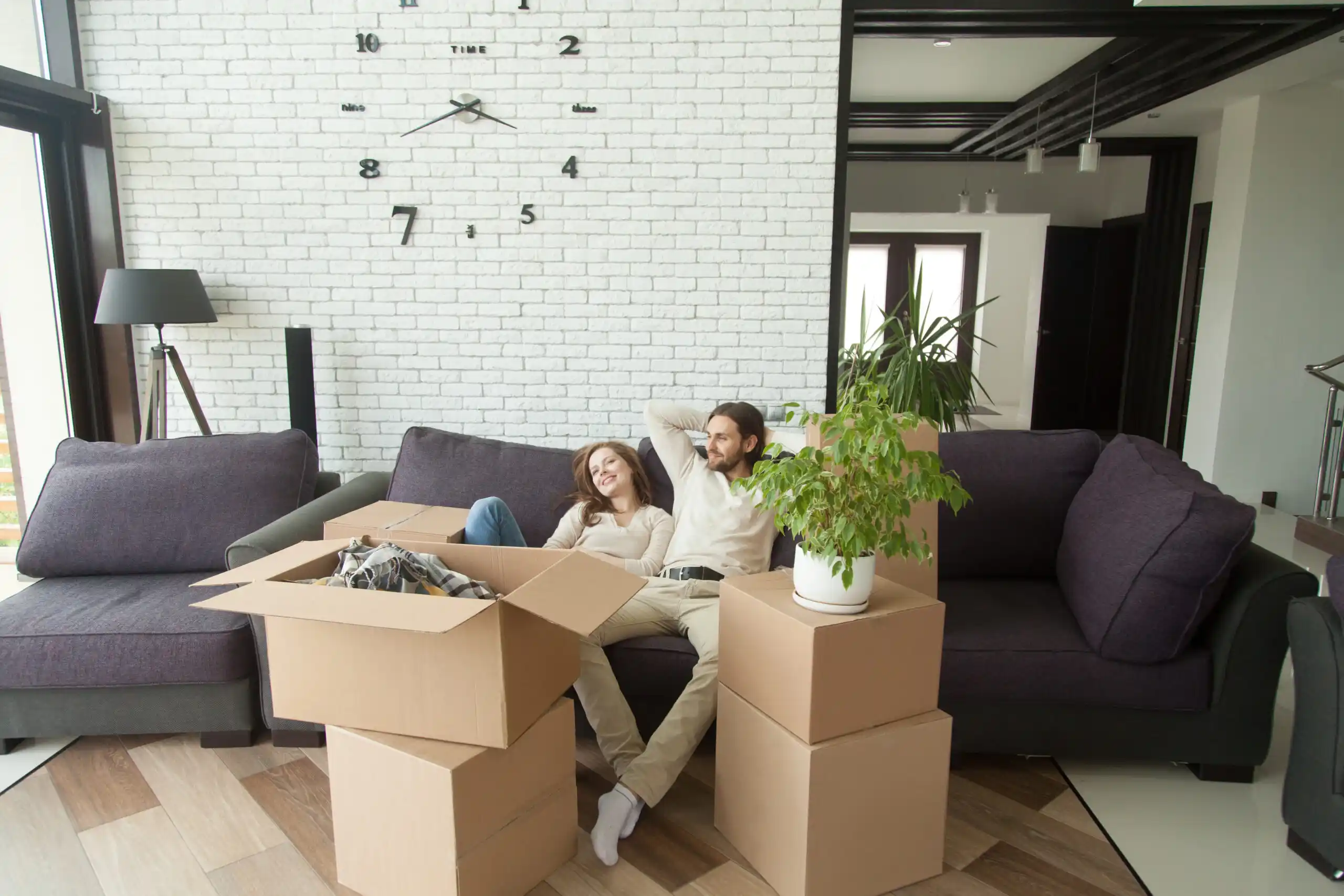Getting your first apartment is a rite of passage. Whether you’re finally moving out of your parent’s house or leaving your dorm days behind, the freedom of your first place is exhilarating. It does come with many more responsibilities as well. First and foremost, of course, are the new expenses you’re going to have.
Moving out on your own and being a first-time renter is a big deal. For perhaps the first time in your life, you’re truly in charge. No curfews, no rules (except self-imposed ones), and the freedom to basically do whatever you want in your own space. However, that freedom comes with a price. You’ll not only be paying the rent, but a handful of other expenses you probably never had to worry about before. Don’t worry, though. We’ve all been there before. So let us dispense our best advice about stepping out on your own for the first time.
Even the most organized people can get overwhelmed trying to sort out everything they need to find the perfect place. Here are some ways to make the process just a little bit easier on yourself. Hopefully, you’ll have a stress-free move and be able to truly enjoy this monumental step towards full adulthood.
Determine Your Budget
Overestimating how much you can spend on rent is one of the biggest mistakes a first-time renter can make. It’s essential that you consider everything else you will be paying, even the most minor of things. Yes, your budget needs to include your Netflix or Spotify account.
A detailed budget will help you get an overall idea of what your expenses will be. Many rent calculators are available online. You can input your desired location, the number of bedrooms, and your gross monthly income. The calculator will do a lot of the math for you, and show you how much rent you can truly afford to pay. Some calculators will even then link to available apartments that fit your budget.
Not sure where to start on building that budget? Check out our article on setting a realistic rental budget.
Roommates (Are They Necessary?)
After you’ve built out your budget, you may realize that finances are going to be a little tighter than you expected. Consider looking for a roommate to help ease that financial burden. While you may have dreamed about finally living alone, many young people get started by living with roommates.
If you’ve decided that a roommate is the right choice for you, it’s time to start searching for one. You may have a best friend who’s ready to move in with you in a heartbeat. Or you may want to find someone entirely new. Finding a compatible roommate will mean choosing what kind of lifestyle you want and what you can and cannot tolerate. Make sure that you’re ready to accommodate and make some compromises along the way. Being a bit picky about your roommate can go a long way to avoiding drama down the road.
Choose your Neighborhood
Maybe your dream location is somewhere close to work. Perhaps you want to be right downtown, close to the nightlife and other action. Or maybe being close to your family is at the top of your priority list. Wherever your dream neighborhood, you should ask yourself these questions to narrow your search down.
- Do you want to be closer to work?
- How accessible is public transit? Or do you have a vehicle and plan to drive?
- Is quiet important? Or do you like the buzz of the nightlife?
- Is your dream location more expensive than some other potential options?
- Do you want to be right near attractions (bars, restaurants, sports stadiums, live music, museums, etc.)
Narrowing down your search based on your preferences will make it easier for you to find the perfect location.
 Shutterstock
ShutterstockThe Parking Situation
While having a car isn’t exactly a top priority when apartment hunting, it’s still something you need to consider. If you own a car, not only do you need to consider driving expenses into your rental budget, you also need a place to park it. Some rentals don’t include any sort of parking spot. Others will offer you one — for an increased monthly fee. If you live somewhere that doesn’t have friendly street parking options, you may be constantly frustrated.
When searching for your first apartment, don’t neglect to think about what kind of parking situation you need. Do you want an assigned spot, so you never have to worry about looking for a spot? Are you okay with street parking? Or would you prefer something like a parking garage, which covered and a little bit safer? Whatever your preferences, it’s essential to consider the parking situation when looking at possible rentals.
Prioritize Amenities
Your apartment is more than simply a place to live. It will also have an impact on your overall lifestyle. To that end, you should have a look at the amenities your potential rental offers. These may (or may not) be included in your rent, so you’ll want to know exactly what you get — or what might cost you extra.
Some rental units or apartment buildings include gyms, pools, entertainment rooms, internet or cable services, shared patio and BBQ spaces, laundry rooms, or parking. These things all cost money to maintain, which will certainly drive your rent up. If you’re going to use all those things regularly, that’s great. If you really have no interest in them, though, then why buy a premium to be in a building that includes them?
Updates and Outdoor Spaces
As well as shared amenities, it would help if you considered what you want inside your apartment. Perhaps you want to have a balcony to entertain or have a lovely updated kitchen to cook your meals in every day. Once again, you want to consider your lifestyle and your own personality, to figure out which features are most important to you.
You may have to comprise a bit. It’s hard to find an apartment with everything you’re going to want. A walk-in closet may mean a smaller kitchen. A big balcony could cut into your living room space. Regardless, make yourself a list of what apartment features are the most important to you (and which ones aren’t). Then do your searching based on that list.
Which Floor is Best?
If you haven’t lived in an apartment before, you may not even consider the differences that living on different floors make. Each floor in an apartment complex will come with its pros and cons.
While bottom floors may be the cheapest, they often come with the worst views (and possible noisy upstairs neighbors). On the other hand, they are closest the doors. That makes things like dragging in groceries (and even moving in) much easier. You also don’t have to worry about disturbing anyone below you. Whether you prefer to live 20 stories up or on the ground floor, there’s no right or wrong answer. But it’s something you should think about before you start your search.
What About Temperature?
The bottom floor is usually the coolest. Meanwhile, the top floors typically heat up quickly with rising heat. Middle floors offer the most consistent temperature and are usually the most popular options. Top floors have the best views (but come with a higher monthly cost).
Here’s one more thing to consider — some rentals don’t give their tenants full access to the thermostat. They may wait until it’s really cold to crank up the furnace in the winter or until the first true heat wave of the summer to turn on the A/C. Even something as simple as a basement apartment might mean the upstairs landlord controls the temperature for the whole house. Ask these questions before you agree to sign a rental agreement.
Ask Questions
Speaking of asking questions, you should ask a lot of them. You don’t want there to be any surprises after you sign the paperwork. It helps to form a list of questions ahead of time. That way, you can ask the landlord or rental representative about anything you need to know ahead of time.
You can have a list of general questions about the things we’ve already gone over. (Is there parking? Who controls the temperature? What sort of amenities are offered?) In addition to that, you need to pay special attention to the apartment (and its surroundings) while you’re viewing it. Is it ridiculously hot or cold in there? Are the neighbors being super noisy? Are there any weird smells? Remember that you’re planning to potentially live in this place, so no question is a dumb one. You should also look for any potential repairs that are needed in the apartment. Point them out and ask if they will be fixed before you move in.
 Shutterstock
ShutterstockRental Scam Warning Signs
Finding an apartment you love (and within your budget) can be a challenge. To make matters worse, there are plenty of scammers out there trying to defraud you of your money. They often post too-good-to-be-true apartment listings in order to attract your attention. You need to beware of these malicious actors.
When searching for your first apartment, it’s essential to know the warning signs of a possible rental scam. First-time renters are often more susceptible than others, but even veteran renters can get conned.
What Are The Signs?
If a posting seems too good to be true, it may very well be. Some things to watch out for:
- If the landlord will only communicate by email.
- They ask for a deposit upfront after approving you without much information.
- A sudden emergency comes up, and they’re unable to show you the apartment in person, but suggest you take a look at it from the outside.
Many scammers will take photos of other listings and pretend they are their own. Keep a sharp lookout for any red flags. Don’t feel bad about bailing on any potential rental deal that doesn’t quite feel right.
You’ve Found the Perfect Place
After all the hard work of finding your dream apartment, you finally have a place to call home. Make sure you double-check your budget and that you’ve included all the possibly upfront costs you may endure. Those costs may consist of a security deposit, moving fees, and insurance costs.
Do a nice deep clean of your apartment, whether on your own or by hiring a cleaning company, and get ready to move in. It takes time, but working through this first-time renter’s guide will help make your search that much easier!








